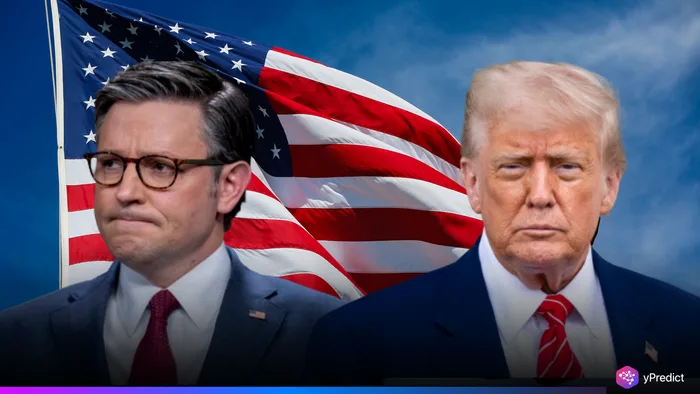
With the Ukraine conflict continuing unabated, U.S. House Speaker Mike Johnson made clear a tactical shift. Speaking from Washington, Johnson indicated the U.S. does not want to get drawn further into the Ukraine war. He indicated in his remarks that Americans are tired of a prolonged response abroad and called for a realistic direction to peace. Johnson reinstated U.S. support for Ukraine but showed no appetite for an open-ended military commitment.
It appeared that Johnson was an ardent supporter of former President Donald Trump’s idea of “peace through strength.” This is more than restoring peace via increased military assistance, it based on the concept that the United States will and can lead through its leadership and deterrence. Johnson’s comments also reflect bipartisan exhaustion and caution about the war bleeding resources and public confidence. There are likely already changes being made when examining U.S. policy as the 2024 election approaches and changes in the beltway.
Mike Johnson Wants to Limit U.S. Role in Ukraine
Mike Johnson’s statement represented a shift in the way Republican leadership views the war in Ukraine. Johnson made it clear that while America continues to support Ukrainian sovereignty, the U.S. cannot afford to expand its involvement.
Johnson stated that there are economic and strategic costs for military support and the American taxpayer must match their money spent to the costs, their national interests and benefits. More in Congress are starting to question whether continued aid draws best directly into own national interests. Johnson’s message also reflected a heightened sense of anxiety from political rivals regarding endless foreign commitments without gain.
Trump’s Peace Through Strength Doctrine Gains Traction
The reference to Donald Trump’s ‘peace through strength’ mantra certainly was no accident. Johnson specifically praised former President Trump’s style of leadership, while conveying the message that a strong diplomatic stance when coupled with credible threats is preferable to prolonged warfare.
The message made sense for conservative voters who prefer hardball diplomacy to long-term military deployments. For some time Trump has claimed he would have deterred Russian aggression simply by being in office. By endorsing this view, Johnson also signals a wider evoke of the Trump-era reliance on foreign policy thinking amongst the Republican hierarchy.
A Call for a Realistic Peace Plan
While Johnson did not offer a step-by-step blueprint, his speech centered on the need for realistic expectations. He urged Washington and its allies to focus on ending the war through negotiation. The emphasis was on securing peace without escalating U.S. involvement, contrasting with earlier bipartisan calls for unlimited support.
He also highlighted the human cost both to Ukrainian civilians and to U.S. service members involved in indirect support operations. “We hope for a swift and lasting peace,” Johnson said, urging world leaders to stop treating military escalation as the only path forward.
Balancing Support with Strategic Interests
Johnson’s messaging also indicates that there is a balancing act between supporting Ukraine and respecting the U.S. strategic interests. He clearly states, Washington is standing behind Ukraine’s right of self-defense, but he warns against support without limits.
The U.S. war policy on Ukraine not only competes with inflation and civil disorder, but it is also competing with emergent geopolitical constraints, particularly with Russia and other adversaries. Johnson’s messaging is intended to balance America’s moral obligation to aid Ukraine, with pragmatic support, aimed at moving forward with a dual emphasis on diplomacy and deterrence.
Political Implications Ahead of 2024 Elections
The current change in Ukraine war policy is underway amid an apparent escalation of political jockeying prior to the 2024 presidential campaign. The endorsement of Trump’s peace initiative by Johnson could invigorate Republican voters who believe they have been disenfranchised from the long-term approach to foreign intervention.
Democrats could argue pulling back somehow is undermining U.S. standing in the world, however, polling indicates that the public is growing uneasy about more military aid. As the Ukraine issue arises in the election narrative, both parties are changing the way they message it.
Final Thoughts
Mike Johnson’s remarks signal a clear shift in U.S. foreign policy direction on Ukraine. He embraces a Trump-style peace-through-strength approach that favors diplomacy over endless conflict. Johnson draws a line between military restraint and long-term entanglement. This rhetoric sets a tone for a more strategic foreign engagement model. As campaign season nears, expect this message to shape conversations about America’s global leadership role.







